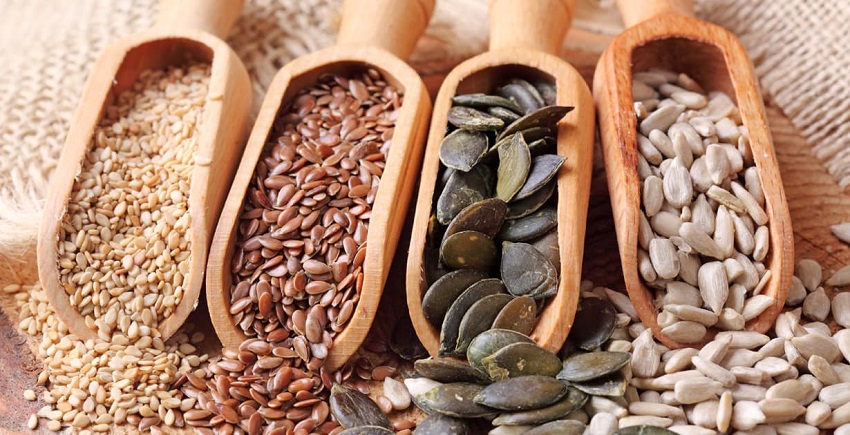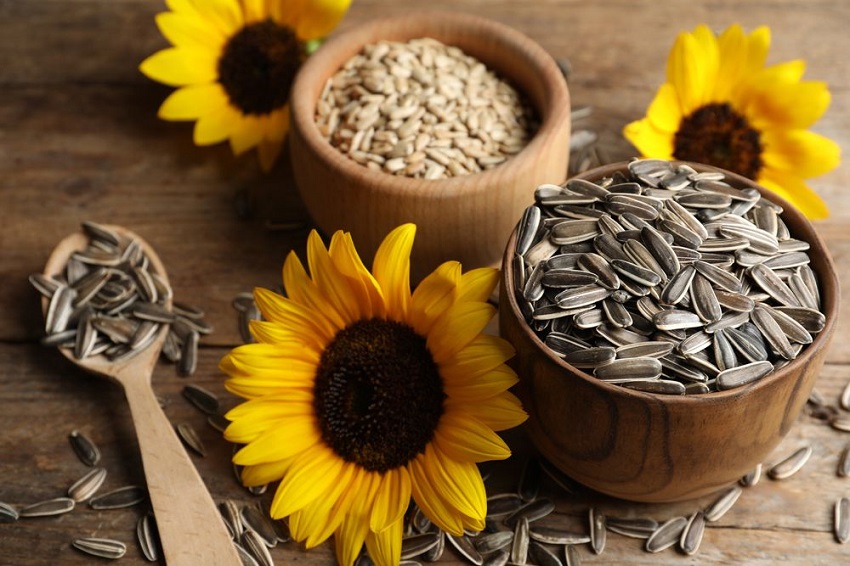
27 Jul Which Is the Best Seed for Heart Health?
In the pursuit of a healthier lifestyle, we often find ourselves seeking the best ways to take care of our heart. One of the key elements that can significantly impact heart health is the type of seeds we consume. Seeds are nutritional powerhouses, packed with essential vitamins, minerals, and heart-friendly fats that can benefit our cardiovascular system. In this article, we will explore various seeds and their potential effects on heart health, shedding light on the best seed for a healthy heart. This article is provided by fruitnfood.com
Understanding the Role of Seeds in Heart Health
Seeds have long been revered for their incredible nutritional value and various health benefits. Many seeds are rich in omega-3 fatty acids, which are known for their positive effects on heart health. Omega-3 fatty acids can help lower triglyceride levels, reduce inflammation, and even lower the risk of heart disease. Additionally, seeds are excellent sources of fiber, antioxidants, and other heart-protective compounds.
The Contenders: Flaxseeds
Flaxseeds have gained immense popularity in recent years, and for good reason. These tiny seeds are a powerhouse of nutrients, including alpha-linolenic acid (ALA), a type of omega-3 fatty acid. ALA has shown promising results in reducing blood pressure, improving cholesterol levels, and enhancing overall heart health.
Flaxseeds are also rich in lignans, a type of antioxidant that may have estrogenic properties and potentially help in reducing the risk of heart disease. Furthermore, the high fiber content in flaxseeds can aid in maintaining healthy blood sugar levels and promoting regular bowel movements. Explore the canary seed benefits.
Chia Seeds: Tiny Yet Mighty
Chia seeds, often touted as a superfood, have been a staple in the diets of ancient civilizations. These minuscule seeds pack a punch when it comes to heart health. Just like flaxseeds, chia seeds are abundant in ALA omega-3 fatty acids, making them a heart-friendly option.
Moreover, chia seeds are high in soluble fiber, which can help lower LDL cholesterol levels, thus reducing the risk of heart disease. Their gel-like consistency, when mixed with liquids, can also create a feeling of fullness, which might aid in weight management – another factor that contributes to heart health.
The Nutty Marvel: Almonds
While often considered nuts, almonds are technically seeds that come from the fruit of the almond tree. These delectable and crunchy seeds are not just a delightful snack; they also offer a wide array of heart benefits.
Almonds are an excellent source of monounsaturated fats, which are heart-protective and can help lower LDL cholesterol levels. Additionally, these nuts/seeds are rich in vitamin E, an antioxidant that plays a vital role in maintaining healthy blood vessels.
Sesame Seeds: A Heart-Smart Choice
Sesame seeds may be tiny, but they are brimming with nutrients that contribute to heart health. These seeds are loaded with sesamin and sesamolin, two compounds known for their antioxidant properties, which can aid in protecting the heart from oxidative stress.
Moreover, sesame seeds are an abundant source of magnesium, a mineral that helps maintain a steady heartbeat and supports healthy blood pressure levels. Including sesame seeds in your diet can be a flavorful way to promote heart health.
Pumpkin Seeds: A Heart-Friendly Snack
Pumpkin seeds, also known as pepitas, are not only a delicious snack but also an excellent addition to your heart-healthy diet. These seeds are rich in magnesium, potassium, and iron, which play crucial roles in maintaining heart function and overall cardiovascular health.
Furthermore, pumpkin seeds are a good source of plant-based omega-3 fatty acids and phytosterols, both of which can contribute to lowering cholesterol levels. Snacking on pumpkin seeds can be a heart-friendly alternative to less nutritious snacks.
Sunflower Seeds: Nourishing the Heart
Sunflower seeds, with their pleasant nutty flavor, are a popular choice among seed enthusiasts. These seeds are loaded with vitamin E, an antioxidant that helps protect the heart from oxidative damage.
Sunflower seeds are also a good source of selenium, a mineral that supports heart health by reducing inflammation and oxidative stress. Additionally, these seeds contain healthy fats that can help maintain cholesterol levels within a healthy range.
Ranking the Seeds: The Ultimate Heart-Smart Seed
While all the seeds mentioned above offer various heart health benefits, flaxseeds stand out as the ultimate heart-smart seed. With their exceptional omega-3 fatty acid content, lignans, and fiber, flaxseeds provide a powerful combination of heart-protective nutrients.
Incorporating flaxseeds into your daily diet is relatively easy. You can sprinkle ground flaxseeds on your morning cereal, mix them into smoothies, or even use them as an egg substitute in certain recipes.
A Word of Caution
Although seeds are undoubtedly a nutritious addition to any diet, moderation is key. As with all foods, it’s essential to consume seeds in appropriate portions. Seeds are calorie-dense, and excessive consumption might lead to unwanted weight gain, which can negatively impact heart health in the long run.
If you have any existing medical conditions or concerns about incorporating seeds into your diet, it’s advisable to consult with a healthcare professional or a registered dietitian.
In conclusion, seeds are indeed a treasure trove of heart-healthy nutrients. From flaxseeds and chia seeds to almonds and sesame seeds, each type brings its unique benefits to the table. However, flaxseeds stand out as the best seed for heart health due to their exceptional omega-3 fatty acid content and other heart-friendly compounds.
By adding flaxseeds to your daily diet, you can take a significant step towards promoting your cardiovascular well-being. Remember, a balanced and varied diet, coupled with regular exercise, is the key to a healthier heart and a happier life.


No Comments